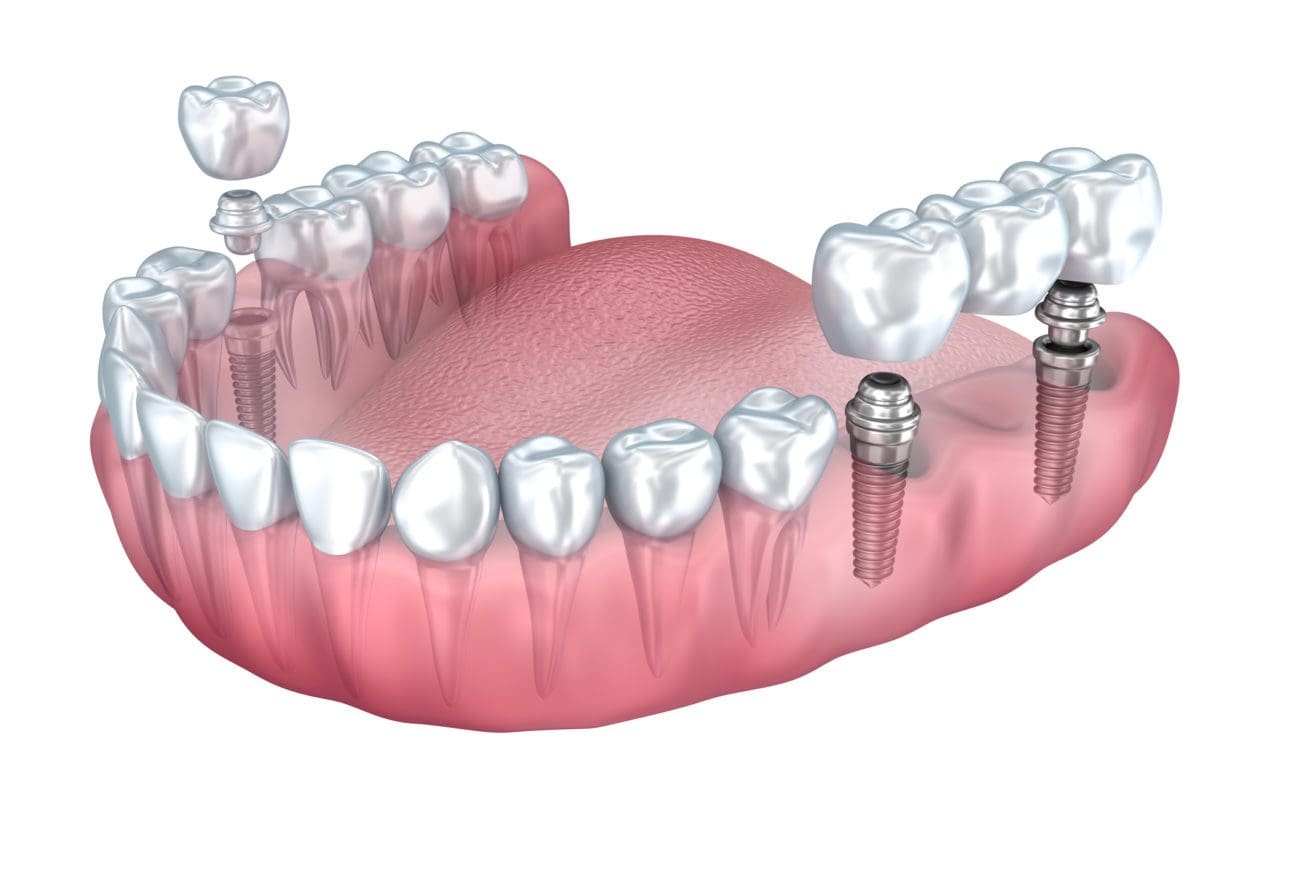Dental Sense Things To Know Before You Get This
Table of ContentsGetting My Dental Sense To WorkDental Sense Can Be Fun For AnyoneDental Sense Fundamentals ExplainedSome Known Details About Dental Sense
are clinical tools operatively implanted into the jaw to recover an individual's capability to eat or their appearance. They supply assistance for fabricated (fake) teeth, such as crowns, bridges, or dentures. When a tooth is lost as a result of injury or condition, a person can experience issues such as fast bone loss, faulty speech, or adjustments to eating patterns that lead to discomfort.Oral implant systems consist of a dental implant body and dental implant joint and may likewise consist of a joint addiction screw. Wisdom tooth cavity. The dental implant body is surgically placed in the jawbone in area of the tooth's origin. The dental implant joint is generally affixed to the dental implant body by the abutment fixation screw and extends with gums into the mouth to sustain the affixed man-made teeth
(https://pxhere.com/en/photographer-me/4492670)Structure of The Oral Implant System choosing dental implants, speak to your oral supplier regarding the possible advantages and risks, and whether you are a candidate for the procedure. Points to take into consideration: Your overall health and wellness is an important consider identifying whether you are a great candidate for oral implants, how long it will take to recover, and for how long the dental implant might stay in location.
Cigarette smoking may influence the recovery procedure and reduce the long-lasting success of the dental implant. The recovery procedure for the dental implant body might take numerous months or longer, during which time you generally have a momentary abutment in location of the tooth. the oral implant procedure: Very carefully adhere to the dental health instructions provided to you by your oral copyright.
Rumored Buzz on Dental Sense
Implant failing can result in the requirement for another medical procedure to deal with or replace the dental implant system. Recovers the capacity to eat Restores aesthetic look Helps maintain the jawbone from shrinking because of bone loss Maintains the wellness of the bordering bone and periodontals Assists maintain adjacent (nearby) teeth stable Improves top quality of life Damages to bordering natural teeth during implant positioning Injury to the surrounding tissues throughout surgical procedure, such as sinus perforation Injury during surgical treatment (for instance, fracture of surrounding jawbone) Inadequate feature, such as seeming like the teeth do not bite together generally An experience that the tooth is loosened or turning in position resulting from a joint screw loosening up Implant body failing (looseness of the implant body) because of systemic infection, which might be more probable in patients with unchecked diabetes as a result of neighborhood infection in bone and periodontals supporting the dental implant body as a result of delayed healing, which might be a lot more likely in people that smoke Problem cleaning up the periodontals around the implant, causing bad dental health Neglected gum disease Post-surgical pins and needles because of nerve impingement or damage Constantly alert health care companies and imaging specialists that you have oral implants before any type of magnetic resonance imaging (MRI) or x-ray procedures.
FDA is not familiar with any type of unfavorable events reported for MRI or x-ray treatments with dental implants. Oral implants systems are usually made of materials that adhere to international agreement requirements of the International Company for Standardization (ISO) or ASTM International. These criteria have information of what makes a safe material.

A dental implant is a framework that replaces a missing out on tooth. With screw-like tools, the surgeon inserts an implant into the jawbone, and it acts as an anchor for a synthetic tooth, called a crown.
Dental Sense - Truths
Some individuals are not qualified for oral implant surgery. It is for dental specialists to run basics on people with: intense illnessuncontrollable metabolic diseasebone or soft cells condition or infectionIf these concerns are dealt with, a person can have the surgical treatment. In, dental specialists avoid operating individuals with: If individuals with any of the above undertake oral implant surgical procedure, there is a greater danger of the implant stopping working.

Oral dental implant surgery is a personalized procedure. Give you time to heal. Attach the blog post and final crown, bridge or denture.
Next off, your specialist will thoroughly position the oral implant into your jaw. Ultimately, your surgeon will rearrange your gum tissues and close the cut with stitches. If your dental implant is near the front of your mouth, your dentist will certainly make a temporary tooth for you to put on up until you heal. That way, you will not have a gap in your smile while you recuperate.
The smart Trick of Dental Sense That Nobody is Talking About
Your company can inform you what to expect in your situation. Throughout the recovery phase, your jawbone should fuse to the oral implant. This procedure, called osseointegration, is essential for security and lasting success. This process can take anywhere from 3 to 9 months. In many cases, it may take much longer.
As soon as your implant heals, your dental professional can affix the abutment (tiny adapter post) and your final restoration (crown, bridge or denture). This generally takes about one hour to finish and might need a 2nd minor surgical treatment. You should not feel any type of pain throughout your oral implant treatment since your supplier will certainly use medicine to numb your periodontals.